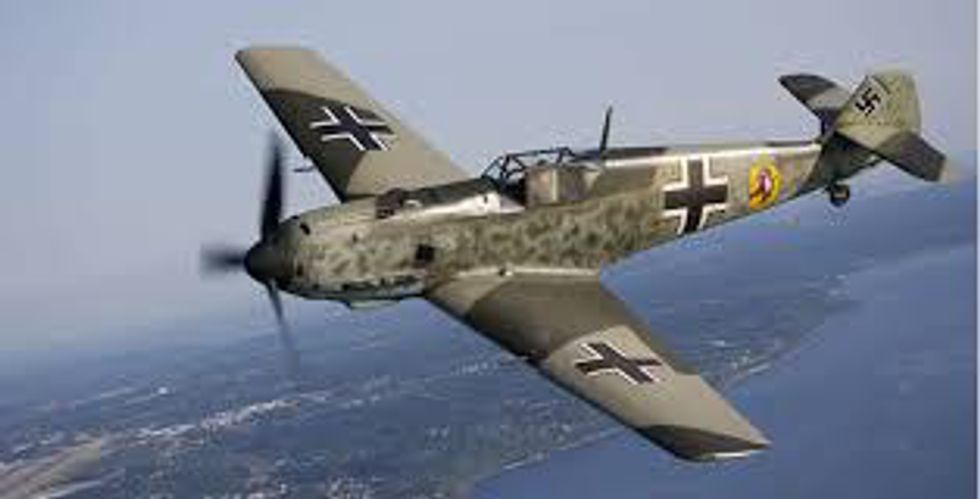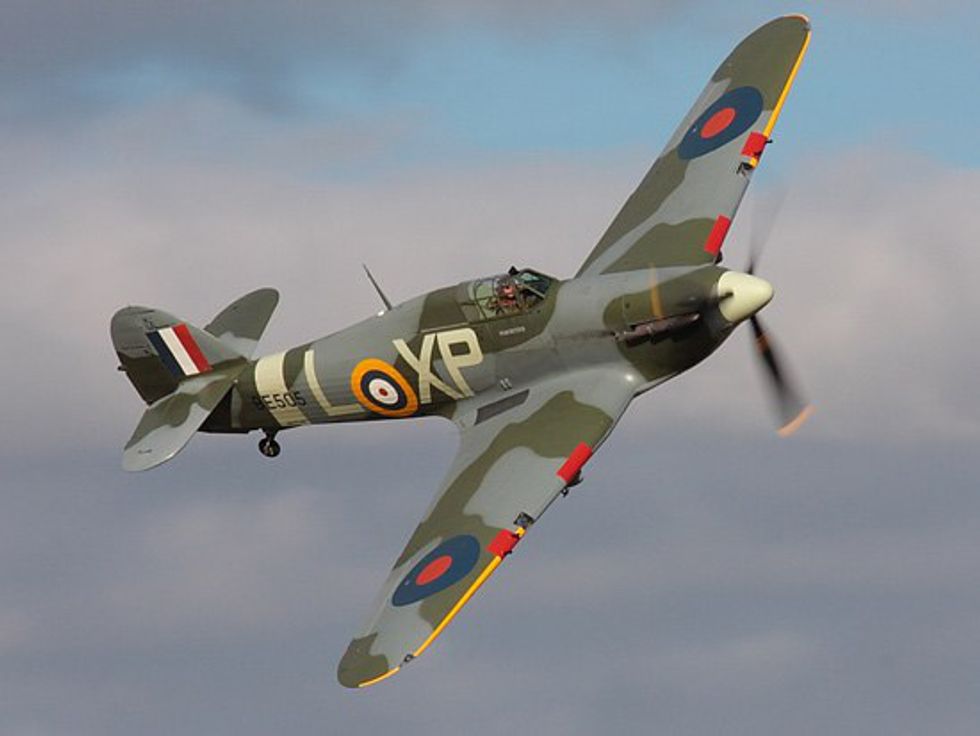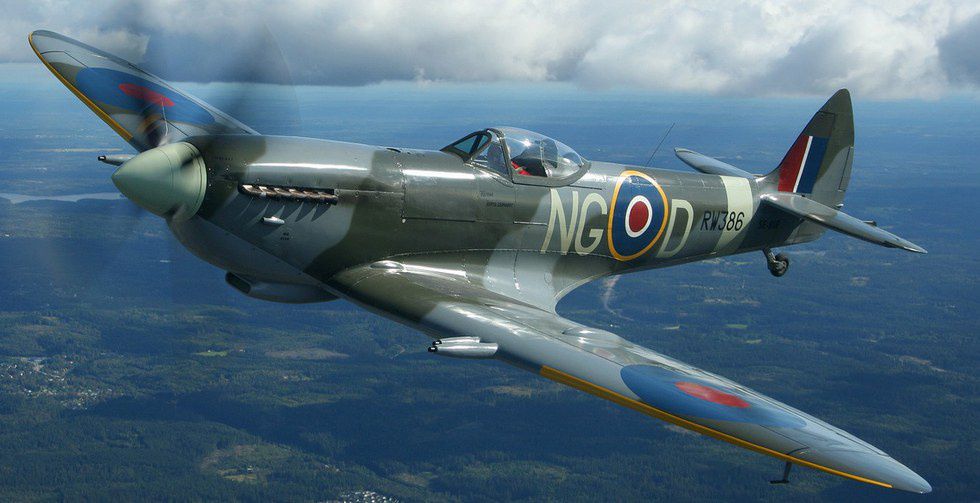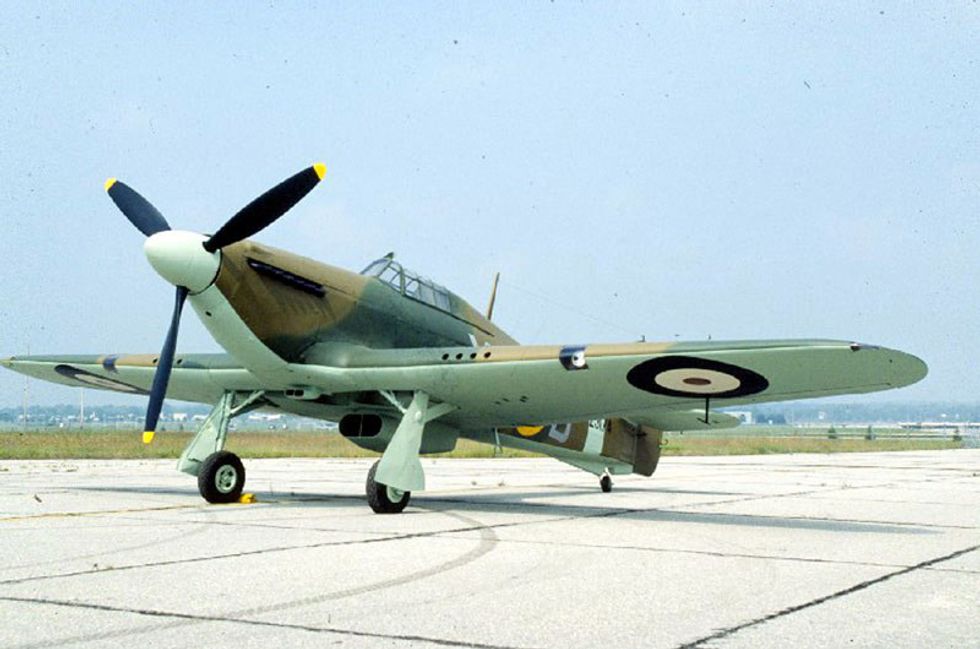This week 76 years ago saw the end of one of the most intense battles of World War 2, the biggest aerial warfare in human history and one of the most difficult victories earned in the war. For three months, the United Kingdom held up against almost daily bombing raids from the Nazi Luftwaffe (air force) as Hitler ordered all-out attack air strike campaign with extreme prejudice against the last remaining Allied power in Europe. Had it succeeded, and Nazi infantry would have entered Great Britain, only God knows how history might have turned out; we all could be speaking German now. In retrospect, however, it is difficult to fathom just how Britain managed to pull of their victory; their Royal Air Force was greatly outnumbered to the mighty Luftwaffe, the seemingly invincible German air force. It is here where our attention turns towards the RAF, who defended their skies against the biggest and the most advanced air force the world has ever seen, and their equipment. The German bombers that these pilots would have had to face were state of the art, efficient, fast and destructive, and the same could be said for the escorts that protected them, planes like the Messerschmitt Bf 109 and Focke-Wulf FW 190.
Recommended for you
They were undefeated fighters that ruled the skies with their speed, agility and aggression. Now, when Battle of Britain aficionados think about the RAF, there is one plane that springs into mind almost immediately: the Supermarine Spitfire, the beautiful yet deadly machine that defeated the Goliath, the German Luftwaffe, and became a British hero. To this day, the Spitfire is fondly remembered in Britain as one of its greatest engineering feats. The legendary status of the Spitfire is very well-deserved, but, on the other hand, it’s unfortunate that its popularity has absolutely eclipsed another machine that did just as much—if not more—against Britain’s aerial war against Nazi Germany. So today, in 76th anniversary of the end of Battle of Britain, I would like to pay a tribute to the unsung hero who made it a reality. Ladies and gentlemen; the Hawker Hurricane.
Compared to the legendary Spitfire, which still looks beautiful and timeless with its curved wings and smooth profile, the Hurricane was (slightly) less magnificent to behold, and it was built from wood and canvas, which was hardly adequate when the opposition was armed with a 20 millimeter cannon and several machine guns. However, the Hurricane was no less effective with its armament of eight machine guns, and with great maneuverability, it could perform all the high-stress maneuvers the new age, high-tech planes could pull off.
When the German Luftwaffe started to invade the British airspace in June 30th, 1940, the Hurricanes were scrambled alongside the Spitfires to protect their King and country, and gave the Germans their money’s worth and shone brightly in the battle-lit skies of Britain. On paper, the German aircrafts had many advantages compared to the Hurricane; their designs featured much stronger yet light all-metal monocoque construction and were much more aerodynamically efficient by design. Combine those traits with more powerful engines, and the German air fleet looked like finely trained Dobermans compared to a round of feisty British Bulldogs that was the Hurricanes of the British. But then, very few things in life go the way the spec sheets predict them to, and the Hurricanes bit the Luftwaffe on their arse end.
The Hurricane made up for its slight antiquity in design by employing sheer firepower. Its guns were mounted closely together on its wings, increasing their effectiveness. The Spitfire, on the other hand, had its guns mounted further apart because of its elliptical wing construction. And because of it had thicker wings, the Hurricane was also more stable when its guns were in use, making it the fighter aircraft of choice to intercept German bombers while the Spitfire was more ideal at keeping the German fighter escorts busy.
Its old design sometimes also came to it as an advantage; its relatively simple mechanical architecture meant it was easier maintain and repair, and damaged units could quickly spring back into action. Its wider track also made it easier to take off and land, even on rougher runways. The Hurricane was just an overall much more durable, much tougher compared to the delicate and brittle Spitfire. And it’s perhaps because of these advantages that those who have flown the Hurricane swore by the Hurricane until their dying days, including those who had the privilege of flying both the Hurricane and the Spitfire.
The Battle of Britain ended on October 31st, 1940, when the Hitler and the higher Nazi command halted efforts to invade Britain, determined that they could not sustain enormous loss of their vital air force while they were also experiencing treacherous losses on the Soviet theater of the war. This enormous achievement, the victory against Nazi Germany’s once invincible Luftwaffe, is all thanks to the Hurricane and the Spitfire. But in all honesty, this precious achievement has to be handed more to the Hurricanes. Had it not been for them, the Royal Air Force would have not had an aircraft that could effectively fight against the hardy enemy bombers. The Spitfires were still expensive and not readily available at the time, and the rest of RAF’s fleet comprised mostly of World War 1-era biplanes which would have been demolished by the German fighter escorts. So thank you, Hawker Hurricane, had it been not for your stellar performance in 1940’s British sky, there is a real chance that we all might be speaking German now, with the Statue of Liberty throwing sieg heil, and nobody wants to see that.






















